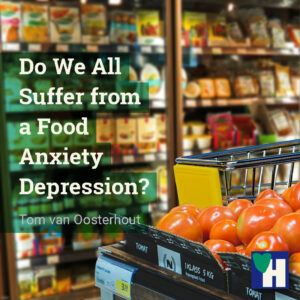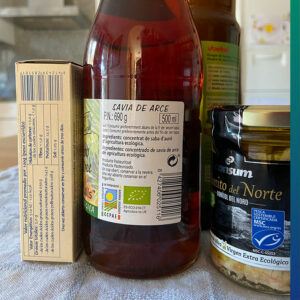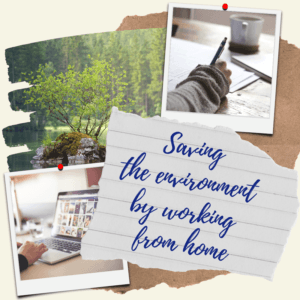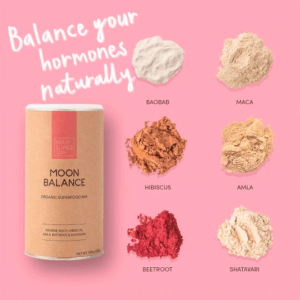
The Food Anxiety Depression is a theory with very strong roots in government and food industry policies and in the science community: “What we can and cannot eat is determined by our fears and uncertainties. This anxiety is incited by the progress that has been made during the past 50 years.”
These are the words of a prominent international expert on food and agriculture. Yet, can we trust these words to be true? Are we really that anxious about what we eat? Did the progress of modern society indeed impose a food anxiety depression on all of us?
Moreover, if food anxiety depression is really spread widely, can we still speak of progress? Do we fear our food? From an opposite point of view we may ask ourselves: is our food dangerous?
Some of the links are affiliate links. As an affiliate associate, we earn a commission when you purchase any of the products offered through the shared links at no extra cost for you. This helps us maintain this website.
Table of contents
Is the food anxiety depression real?
Governments, the food industry and scientists believe citizens suffer from food anxiety depression. However, this is a hoax. Citizens are not anxious at all about their food. Why the discrepancy?
Breach of confidence

Perhaps it is not fair to take the opening statement out of context. However, digging a little bit deeper into the opinions of similar experts, this statement appears to be symbolic. The ‘food anxiety depression theory’ is widely supported in the scientific world.
Most scientists back this theory with the same explanation: there is a great breach of confidence between the consumer and the food that is served to him or her. So the theory must be correct? There are many reasons why I don’t trust this theory. This is the first in a short series of articles in which I will explain my objections.
Dubious mass media
I’m a great supporter of the idea that our behaviour, feelings, and beliefs are related in a complex way. Every day and the whole day long we are exposed to many, very different signals which influence us.

In today’s multidimensional communication universe, this is not really news. However, the signals that reach us through all the different types of mass media we use, do not have such a very significant impact. Moreover, the role of the mass media is rather dubious when it comes to food confidence.
Researchers who performed a scientific mass media food message analysis discovered a very strange anomaly. When the mass media report about accidents with food, they are the first to raise the alarm about the public’s food anxiety depression. When successful, they act as the public’s mouthpiece by venting out the public’s food anxiety they aroused themselves. At the same time, they indignantly blame the authorities for causing the food anxiety.
Fortunately, the power of the mass media is very limited. Less fortunate is however that the mass media can cause the necessary unrest among the authorities and those responsible in the food industry. With a spin-off to scientists. As a result, those that feel responsible try to explain in the mass media nothing is wrong with our food. Thus creating food anxiety depression as a self-fulfilling prophecy.
Buyer strike

An important indicator of people’s trust in food is their behaviour. This is why the following question is relevant: has our alleged food anxiety depression led to a fundamental change in food consumption? Short and simple is the answer: no, not at all.
During a meat contamination crisis, the purchase of meat falls. However, after a couple of months sales are back to the old level. Buyer strikes are usually temporary and only a small portion of consumers participate in such a strike.
No matter how convincingly fear usually determines our behaviour, in the case of our food consumption, so far, the fears have no lasting effects. So either most people suppress or deny their food anxiety depression, or the mass media, the authorities, the food industry, and the scientists are wrong.
Resistance is futile

Our eating behaviours do not support the food anxiety depression theory. From early in the morning until late at night, we eat. Usually without giving it much thought.
Of course, we cannot avoid food. We may very well eat fully aware that we suffer from food anxiety depression. Perhaps even fully aware of the fact that progress caused this anxiety. No matter how scared we are, we must eat. Resistance is futile.
Balancing pros and cons
Our perception of the risks of what we can or cannot eat is also an indication of our food anxiety. However, risk perception is a complex process of balancing pros and cons. Age, gender, upbringing, and cultural background determine this balancing process and its outcome.
And there are other important determining factors. Is the exposure to the risk voluntary or involuntary? Are we able to mitigate the risk? Is it something that touches upon our concerns? Are we used to the risk or not? Do we perceive the risk as something trivial or not? Does the risk go against our sense of justice or not?
Control and transparency

Researchers who investigated the importance of food safety with an online survey discovered that safety and transparency play an important role in the purchase of food in the supermarket. Shoppers want to know whether or not the food has been checked for safety.
A large group of shoppers is interested in the production method. Specifically when it comes to chicken and meat. They prefer this information as close as possible to the place of purchase, on packaging (labels), or on the shelf. Only a very small group of supermarket shoppers are seriously concerned about food safety.
This study confirms the conclusion that in the opinion of the consumers the links at the beginning of the food chain (government, inspection authorities, and producer) bear more responsibility than the links at the end of the food chain (supermarket and the consumer).
Related: Nutritional Guidelines with a Sustainable Focus
Food anxiety depression is a societal issue?
Despite the complexity of food safety, the answer to the question of whether we suffer from food anxiety depression is surprisingly simple. We hardly perceive any food problems. We perceive our food as safe and healthy. At best, the average citizen perceives food safety as a societal issue.
Food safety is not an individual issue. We do not set any conditions for our individual food safety domain. We have, however, two very strong views on the responsibilities of the food industry and the government.
First, the food processing technology and the control systems used by industry, science, and the authorities must be state of the art. Second, citizens put the responsibility for food safety firmly in the hands of the (controlling) authorities and the business community. When these conditions are not met, they want severe sanctions applied.
In another article, I will argue that consumers opt for zero food risk yet are not willing to pay for it.
Related: Why is Food Safety Important for All of Us?
Tell us your experiences with food safety in the comment box below. Is food safety important for you?

Interesting article Tom. I was unaware of this “Food Anxiety Depression”. Personally, I am conscious of the food I feed my family and always have been.
I am even fussier now about the food we consume for these reasons:
1. The children are grown and gone from home. this allows more flexibility in menu choices. My kids wouldn’t always eat certain vegetables so I would substitute veggies in a lot of recipes.
2. We are getting older because of this our dietary needs change.
3. The fact that our grandson has type 1 diabetes has made us much more conscious of the foods we are ingesting.
4. One of our sons had been diagnosed with Celiac’s disease with restricts all gluten products.
The last two reasons got me experimenting with gluten-free and sugar-free recipes which I like much better, still working on Rick though.
I don’t think I would say I am affected by food anxiety and depression as you describe here, I simply choose to grow my veggies when I can and buy organic when I can’t.
Can’t seem to kick the meat habit yet but maybe someday.
Thanks for this great article, I am looking forward to the next in the series.
Take care.
Hi Deb,
Thank you for your comment, compliments and explanations. The food anxiety depression is just a theory. The problem is that so many of those who are responsible for the food supply chain think that this theory is true.
Never trust a theory? Well that’s a bit too drastic. However, in this case I come up with enough scientific evidence to repudiate the food anxiety depression theory.
You’re a good example of the invalidity of this theory. That is because you’re very conscious of what you do. A lot of different criteria guide your food choices and preparation. At their turn these criteria are guided by your concerns over those that are closest to you. Close social relations are an important motive for conscious shopping and cooking. And growing, as in your case.
There was a time I needed to loose some substantial weight. Because I do all the shopping and cooking, I decided to prepare 2 types of meals, one for Hannie, usually with some fresh fish or chicken or turkey, and one for myself, only containing vegetables. I ate no bread and hardly any potatoes, rice or pasta. After some time Hannie and I started to eat more and more the same. She wanted also to loose some weight. This went very well for us, because we both lost a substantial amount of weight, albeit it took us 2 years.
Stay safe, stay healthy.
Regards,
Tom